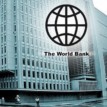

By Victor ‘Tunde Oso
AGAINST the backdrop of the latest World Bank Nigeria Development Update (NDU) of June 25, 2020, notable economists have urged the Federal Government to move decisively in stimulating the economy to prevent it from plunging into a severe recession, comparable to that of the 1980s.
The World Bank report titled, “Nigeria In Times of COVID-19: Laying Foundations for a Strong Recovery,” estimated that Nigeria’s economy would likely contract by 3.2% in 2020. This projection assumes that the spread of COVID-19 in Nigeria is contained by the third quarter of 2020. If the spread of the virus becomes more severe, the economy could contract further. Before COVID-19, the Nigerian economy was expected to grow by 2.1% in 2020, which means that the pandemic has led to a reduction in growth by more than five percentage points.
Also read: COVID-19: FEC approves 2.3trn for Osinbajo’s Economic Sustainability Plan to support the economy
In his reaction to the gloomy forecast, Prof Ken Ife, the Chief Economic Strategist, ECOWAS Commission, said there are no doubt reasonable grounds to expect the COVID-19 pandemic to push Nigeria GDP to negative territory like every other country in the world.
Ife, also a London Enterprise Ambassador, said the jury is, however, out on the quantum of the contraction as recognised by the Economic Sustainability Committee’s report that projected between -4.4% to -8.91% depending on the length of the lockdown, the potency of the economic plans in place and the amount of stimulus.
In its report released the same day, the International Monetary Fund (IMF) had predicted that the Nigerian economy will contract by 5.4 per cent in 2020, lower than the 3.4 per cent negative growth it had estimated for the country in April. However, the Fund anticipated that by 2021, the country’s GDP will grow by 2.6 per cent.
According to Prof. Ife, the IMF projection is in order, though there could be aggravating circumstances due to the deteriorating debt service; debt to revenue ratio in the region of 538%, declining forex revenue, which might pile further pressure on foreign reserves and the slow pace of disbursement of fiscal stimulus and domestic finance intervention. These are expected to support employment, aggregate demand and output; given that household consumption is about 84% of GDP, whilst government accounts for about 5.7%.
On the other hand, both the IMF and World Bank hardly recognise the robust macro-economic responses of Nigerian government compared to the year 2016. A Fiscal Stimulus of N2.3trillion was recommended by the Economic Sustainability Committee led by Vice President Yemi Osinbajo and the N3.5 trillion domestic finance intervention coming from the Central Bank of Nigeria CBN, of which N50billion is rapidly being disbursed by the Nigeria Incentive-Based Risk Sharing System for Agricultural Lending NIRSAL Plc Micro Finance Bank to Households, MSMEs etc. Nationwide disbursement of palliatives, Conditional Cash Transfer and public works programme to create 774,000 jobs (1,000 jobs in each local government area).
The economist explained that the CBN has just disbursed in the region of N350billion on intense mechanisation and end-to-end intervention across the 10 Presidential Agric Value Chain (rice, cotton, tomatoes, maize, cassava, oil palm, cocoa, poultry, aqua-culture and livestock-diary.). Also very significant is the proposal to float a mega infrastructure company capitalised with N15trillion to take the burden off Government with PPP infrastructure concession and reduce the external borrowing by Govt. There are further-reaching measures aimed at increasing the tempo of national savings schemes for individuals, corporates, public, international (diaspora) and informal sectors.
He surmised that all of these will orchestrate a strong national response aimed at diversifying our revenue base, producing more industrial raw materials, increasing food security and achieving national self-sufficiency, while rapidly recovering from COVID-19 pandemic.
For the Director-General of the Lagos Chamber of Commerce and Industry (LCCI) Dr Muda Yusuf, there is no doubt that the outlook for the Nigerian economy is quite gloomy.
Yusuf said the projections of the World Bank and IMF are not significantly different from domestic projections for the outlook. “Only recently the finance minister projected a contraction that could be as high as 8%. The reality is that the Nigerian economy is very vulnerable. It has limited capacity to absorb shocks. Buffers are practically non-existent, excess crude accounts have dried up; sovereign wealth funds are very lean. Just like in humans, the existence of underlying economic conditions makes the impact of the COVID 19 shocks more severe for the economy.”
He added that for investors, the consequences of a stumbling economy are already manifesting. Businesses are experiencing liquidity challenges in the forex market, costs are escalating as a consequence of exchange rate depreciation foreign credit lines are being cancelled, industrial capacity utilisation has plummeted, purchasing power is and job losses are on the increase.
“The IMF and World Bank reports are reflections of the reality, which we are already experiencing. Regrettably, the domestic travel restrictions have further complicated matters as domestic economic integration is impeded. The result is that what is left of the domestic economy is also suffering serious obstructions,” the LCCI D-G said.
Yusuf said, “This is not to diminish the importance of the COVID 19 containment measures of the government”.
The post WORLD BANK, IMF Post COVID-19 Nigeria Forecasts: What FG must do — Economists appeared first on Vanguard News.
https://ift.tt/3i8zZvz by Bankole via Vanguard News Albert Einstein Fools of Fortune
Comments
Post a Comment